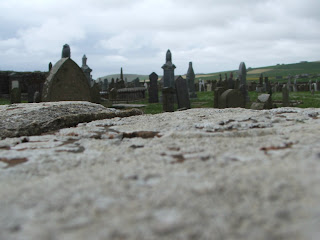
22nd July Barnstaple to Croyde: Taw Estuary
'Day, full-blown and splendid--Day of the immense sun...' This line was repeating in my head as I walked the South West footpath to Croyde - So it has a place in my blog.
GREAT are the myths
Walt Whitman, Leaves of Grass
GREAT are the myths--I too delight in them;
Great are Adam and Eve--I too look back and accept them;
Great the risen and fallen nations, and their poets, women, sages,
inventors, rulers, warriors, and priests.
Great is Liberty! great is Equality! I am their follower;
Helmsmen of nations, choose your craft! where you sail, I sail,
I weather it out with you, or sink with you.
Great is Youth--equally great is Old Age--great are the Day and
Night;
Great is Wealth--great is Poverty--great is Expression--great is
Silence.
Youth, large, lusty, loving--Youth, full of grace, force,
fascination!
Do you know that Old Age may come after you, with equal grace, force,
fascination?
Day, full-blown and splendid--Day of the immense sun, action,
ambition, laughter,
The Night follows close, with millions of suns, and sleep, and
restoring darkness.
Wealth, with the flush hand, fine clothes, hospitality;
But then the Soul's wealth, which is candor, knowledge, pride,
enfolding love;
(Who goes for men and women showing Poverty richer than wealth?)
Expression of speech! in what is written or said, forget not that
Silence is also expressive,
That anguish as hot as the hottest, and contempt as cold as the
coldest, may be without words.
Great is the Earth, and the way it became what it is;
Do you imagine it has stopt at this? the increase abandon'd?
Understand then that it goes as far onward from this, as this is from
the times when it lay in covering waters and gases, before man
had appear'd.
Great is the quality of Truth in man;
The quality of truth in man supports itself through all changes,
It is inevitably in the man--he and it are in love, and never leave
each other.
The truth in man is no dictum, it is vital as eyesight;
If there be any Soul, there is truth--if there be man or woman there
is truth--if there be physical or moral, there is truth;
If there be equilibrium or volition, there is truth--if there be
things at all upon the earth, there is truth.
O truth of the earth! I am determin'd to press my way toward you;
Sound your voice! I scale mountains, or dive in the sea after you.
Great is Language--it is the mightiest of the sciences,
It is the fulness, color, form, diversity of the earth, and of men
and women, and of all qualities and processes;
It is greater than wealth--it is greater than buildings, ships,
religions, paintings, music.
Great is the English speech--what speech is so great as the English?
Great is the English brood--what brood has so vast a destiny as the
English?
It is the mother of the brood that must rule the earth with the new
rule;
The new rule shall rule as the Soul rules, and as the love, justice,
equality in the Soul rule.
Great is Law--great are the few old land-marks of the law,
They are the same in all times, and shall not be disturb'd.
Great is Justice!
Justice is not settled by legislators and laws--it is in the Soul;
It cannot be varied by statutes, any more than love, pride, the
attraction of gravity, can;
It is immutable--it does not depend on majorities--majorities or what
not, come at last before the same passionless and exact
tribunal.
For justice are the grand natural lawyers, and perfect judges--is it
in their Souls;
It is well assorted--they have not studied for nothing--the great
includes the less;
They rule on the highest grounds--they oversee all eras, states,
administrations.
The perfect judge fears nothing--he could go front to front before
God;
Before the perfect judge all shall stand back--life and death shall
stand back--heaven and hell shall stand back.
Great is Life, real and mystical, wherever and whoever;
Great is Death--sure as life holds all parts together, Death holds
all parts together.
Has Life much purport?--Ah, Death has the greatest purport.















